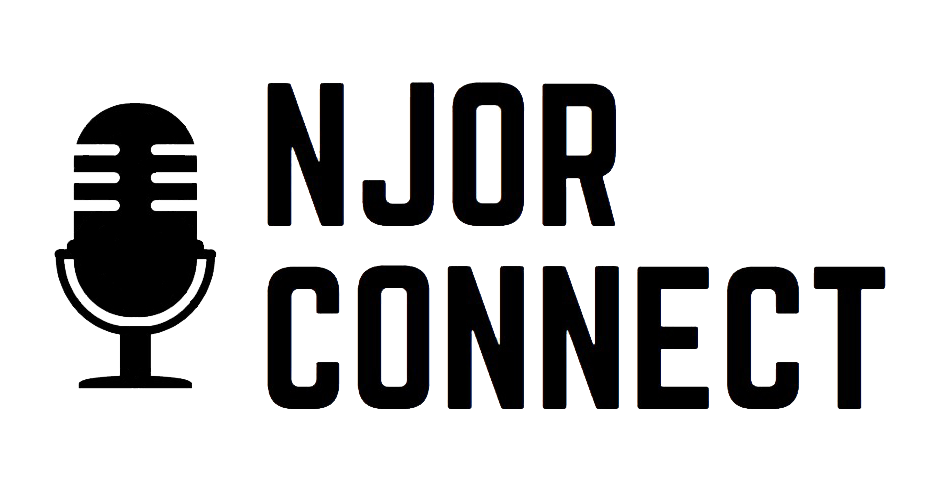In the ever-shifting sands of the digital landscape, a new titan has risen, capturing hearts and minds across the globe: podcasting. This auditory renaissance, blending the ancient art of storytelling with cutting-edge technology, has witnessed an astronomical rise, reshaping the way we consume media. In this world awash with digital content, podcasting stands out as a beacon of intimacy and authenticity, offering a personal touch in the impersonal expanse of the internet.
In the realm of book publishing, this digital revolution brings both unprecedented opportunities and daunting challenges. The traditional pathways of marketing books are being rapidly outmoded, overtaken by the need for innovative strategies that resonate with today’s tech-savvy readers. Publishers and authors alike find themselves navigating a complex, often bewildering landscape, searching for ways to connect with audiences bombarded with endless choices.
This is where the power of podcasting comes into play, offering a unique and potent tool in the arsenal of book marketing. With its ability to forge deep, personal connections with listeners, podcasting opens up new avenues for authors to tell their stories, share their insights, and engage with audiences on a level that transcends the written page. This blog post explores the dynamic synergy between podcasting and book launches, delving into how this modern medium can significantly amplify a book’s visibility and deepen audience engagement, ultimately transforming the traditional book launch into a vibrant, interactive experience.
The Podcast Revolution and Its Impact on Media Consumption
The podcasting landscape has experienced a meteoric rise, becoming a cornerstone of modern media consumption. This revolution is underscored by staggering statistics: as of the latest reports, over 2 million podcasts are streaming across the globe, with hundreds of millions of episodes available to listeners. The United States alone boasts over 100 million monthly podcast listeners, a number that’s projected to surge in the coming years. This explosive growth highlights a fundamental shift in how individuals engage with content, seeking more personalized, on-demand, and diverse auditory experiences.
Delving into the demographics of podcast listeners reveals a mosaic of audiences. The podcasting realm is predominantly frequented by the younger generation, with a significant portion of listeners falling between the ages of 18 and 44. This demographic is typically characterized by tech-savvy individuals, often multitaskers who consume podcasts while engaging in other activities like commuting, exercising, or performing household tasks. Notably, podcast listeners are known for their loyalty and engagement, with a majority tuning in to most or all episodes of their subscribed podcasts. This presents a unique opportunity for authors to tap into a dedicated and engaged audience base.
The appeal of podcasts in the digital era lies in their intrinsic nature – they offer a sense of intimacy and connection that is often lacking in other forms of media. Podcasts create a one-on-one connection between the host and the listener, forging a bond that feels both personal and authentic. For authors, this means an opportunity to establish a direct line of communication with potential readers, sharing stories, insights, and engaging in conversations that resonate on a deeper level. In a world where consumers are bombarded with endless streams of visual content, the intimate and focused experience of podcasts stands out, offering a refreshing alternative that captivates and retains audiences. This unique appeal makes podcasting not just a trend, but a powerful tool in the evolving digital media landscape, particularly for those looking to launch and promote their books effectively.
Why Podcasting is a Game-Changer for Book Launches
The advent of podcasting has revolutionized the book launch strategy, primarily due to its extraordinary ability to reach targeted audiences. Unlike broad-spectrum advertising, podcasts often cater to niche interests, creating a platform where authors can connect directly with an audience that is inherently interested in their genre or subject matter. This precision in targeting enables a deeper engagement with potential readers, as the content is highly relevant to their interests and needs. For instance, an author of a science fiction novel can feature on podcasts dedicated to sci-fi enthusiasts, ensuring a direct line to a captivated and relevant audience.
Examining case studies of successful book promotions via podcasts illuminates this strategy’s efficacy. For example, consider the launch of “The Silent Patient” by Alex Michaelides. By appearing on popular literary podcasts and discussing the psychological thriller aspects of the book, Michaelides was able to tap into an audience already inclined towards his genre, resulting in a significant boost in interest and sales. Similarly, memoirs and non-fiction works often find success through appearances on subject-matter-specific or thematic podcasts, where the author’s expertise and book content align perfectly with the listeners’ interests.
Comparing podcasting with traditional book marketing methods further highlights its distinct advantages. Traditional methods like book readings, signings, and print media advertisements often rely on a broad approach, casting a wide net in the hopes of catching some interested readers. This method, while having a broad reach, lacks the precision and personal touch of podcasting. Podcasting, on the other hand, allows for in-depth discussions, personal storytelling, and direct engagement with listeners, creating a more intimate and persuasive appeal. This approach not only increases the likelihood of reaching interested readers but also fosters a stronger connection between the author and the audience, often translating into loyal readership and better sales. In the digital age, where personalized content is king, podcasting stands out as a tailored, effective, and innovative approach to book marketing.
Defining Your Podcast Strategy for Book Launch
Embarking on a book launch through podcasting requires a well-thought-out strategy, tailored to make your story resonate with listeners. The first crucial step is identifying the right podcasts that not only align with your book’s genre but also cater to your intended audience. This involves meticulous research to uncover podcasts that not only have a strong listener base but also align with the themes, tone, and style of your book. For instance, if your book is a historical fiction, targeting podcasts that delve into history, storytelling, or even specific time periods relevant to your book can be highly effective. Utilizing podcast directories, listening to episodes, and understanding the interests and demographics of their audiences can guide you to make informed decisions.
Crafting a compelling narrative for your book is the next critical phase. This narrative should transcend beyond a mere synopsis of the book; it should weave in your personal journey, the inspirations behind your book, and intriguing tidbits that pique interest. The key is to create a story around your book that is not only engaging but also relatable and memorable. Sharing unique insights, behind-the-scenes experiences, or challenges you faced during the writing process can add depth to your narrative and make your book more appealing to listeners.
Finally, tips on creating engaging and memorable podcast content are essential. Adaptability is vital; each podcast has its unique format and style. Tailoring your message to fit the tone and flow of the podcast while maintaining your authenticity is crucial. Engage in genuine conversations instead of scripted monologues. Utilize storytelling techniques to make your points more vivid and impactful. Remember, podcast listeners are looking for an experience, not just information. Incorporating elements of surprise, humor, or emotion can make your content more captivating. Prepare but be ready to go off-script when the conversation calls for it, as this spontaneity often leads to the most memorable and authentic interactions.
Building Relationships with Podcasters
Successfully leveraging podcasting for your book launch pivots on building strong, symbiotic relationships with podcast hosts. The initial step is mastering the art of the approach and pitch. This begins with personalized outreach, where you demonstrate familiarity with the podcast’s content, style, and audience. Tailor your pitch to highlight how your book aligns with their podcast’s theme and can add value to their listeners. It’s not just about selling your book; it’s about presenting a story or insight that enriches their podcast. Be concise, clear, and compelling, showcasing the unique angle your book offers.
Developing a mutually beneficial relationship with podcasters is the cornerstone of this strategy. This goes beyond a one-time appearance; it’s about cultivating a partnership. Offer to promote the podcast episode across your networks, bringing new listeners to their platform. Be open to various collaboration formats, such as guest blogging or participating in podcast-hosted events. Show appreciation for their platform and audience, and express a genuine interest in contributing to their community.
Engaging with the podcast community on an ongoing basis can significantly amplify your impact. This can be achieved by actively participating in discussions on the podcast’s social media channels or forums, offering insights, answering questions, or sharing relevant content. Such engagement demonstrates your commitment to the community and can foster a loyal following. Additionally, staying in touch with podcast hosts after your appearance, providing updates on your book’s journey, or sharing relevant new content can keep the relationship alive and open doors for future collaborations. Remember, successful engagement with the podcast community is rooted in authenticity and a shared passion for the content, creating a lasting impression that extends far beyond the book launch.
Preparing for Your Podcast Appearance
When the opportunity arises to showcase your book on a podcast, being meticulously prepared can make all the difference. The first step is ensuring a technical setup that guarantees high-quality audio, as this is crucial for a professional and pleasant listening experience. Investing in a good-quality microphone is essential. A condenser mic or a dynamic mic with a USB interface often provides clear, crisp sound. Use headphones to avoid echo and feedback during the recording. Additionally, recording in a quiet, echo-free room enhances sound quality. Some authors even opt for simple soundproofing techniques, like hanging blankets or using foam panels to dampen ambient noise.
Developing a confident and engaging speaking style is equally important. Remember, podcasts are an auditory experience; your voice, tone, and delivery carry your message. Practice speaking clearly and at a moderate pace. Pay attention to your voice modulation to emphasize key points and avoid monotony. Engage in mock interviews or record yourself to self-evaluate and improve. Storytelling skills can be a powerful tool in podcasting; narrate anecdotes, experiences, and book excerpts in a way that captivates listeners.
Anticipating and preparing for interview questions is the final, crucial aspect of your preparation. While the spontaneity of conversations can add charm to a podcast, being prepared with key messages and stories about your book is essential. Familiarize yourself with common interview formats and potential questions. Prepare concise, insightful responses, especially for questions about your book’s themes, the writing process, and personal stories related to your book. However, remain flexible and open to unexpected questions, as they often lead to the most engaging and memorable conversations. Preparing anecdotes or interesting facts related to your book can also add an element of surprise and intrigue, keeping listeners engaged and curious about your work.
Amplifying Your Book Launch Through Podcast Appearances
Your podcast appearance is a pivotal moment in your book launch strategy, but its impact can be magnified manifold through strategic promotion and engagement. To maximize the reach, promote your podcast appearances vigorously across your social media channels and other platforms. Create anticipation before the episode airs with teaser posts, sharing snippets or intriguing details about what listeners can expect. Once the episode is live, share the link widely, tagging the podcast host and using relevant hashtags to extend reach. You can also create engaging content such as quotes, key takeaways, or interesting anecdotes from your podcast discussion and share these across your platforms to spur interest.
Encouraging listeners to engage with your book during and after your podcast appearance is crucial. One effective strategy is to offer a special promotion or a unique piece of content related to the book exclusively for podcast listeners. This could be a discount code, a free chapter, or an invite to an online book discussion or Q&A session. Such offerings not only incentivize listeners to explore your book but also make them feel valued and part of an exclusive group. Always include a clear call-to-action, directing listeners on how to purchase your book, join your mailing list, or follow your author journey on social media.
Tracking and leveraging metrics from your podcast appearances allows you to understand the impact and refine your strategies. Many podcast platforms provide data on episode downloads, listener demographics, and engagement rates. Analyze these metrics to gauge the reach and effectiveness of your appearance. This data can be invaluable in understanding your audience better and tailoring your future marketing efforts. Additionally, feedback and comments from listeners can provide insights into their perceptions and interests, which can be used to enhance your book’s positioning and marketing messages. By strategically promoting your appearances, engaging listeners, and leveraging metrics, you can significantly amplify the impact of your podcast appearances on your book launch.
Post-Launch: Keeping the Momentum Going
After the initial flurry of your book launch, sustaining the momentum is critical for long-term success. Podcast appearances can play a key role in this ongoing promotional effort. One strategy is to schedule appearances not just in the run-up to the launch but also in the weeks and months following it. This keeps the conversation about your book alive and reaches new audiences who may have missed the initial launch. You can discuss new angles of your book, share stories about reader reactions, or delve into deeper discussions about themes and characters, keeping the content fresh and engaging.
Engaging with listeners post-launch is essential for building a community around your book. Actively participate in the comments section of the podcast platform or on social media posts related to your appearance. Respond to listener questions, thank them for their feedback, and encourage them to share their thoughts about your book. This engagement not only fosters a loyal fan base but can also lead to valuable feedback and reviews, which are crucial for attracting new readers.
Developing long-term strategies for podcast-related book marketing involves being consistent and creative. Consider starting your own podcast where you can continue to share insights, host discussions, and keep your book in the public eye. Collaborating with other authors or experts in your genre for podcast episodes can also expand your reach. Additionally, staying connected with podcast hosts and networks for future appearances, collaborations, or cross-promotion opportunities can provide ongoing platforms to promote your book. By strategically leveraging podcast appearances, engaging with listeners, and innovating in your promotional tactics, you can maintain the excitement and interest in your book well beyond the launch.
Analyzing Success: Case Studies of Effective Podcast-Driven Book Launches
To truly grasp the impact of podcasting in book launches, examining successful case studies offers invaluable insights. One notable example is the launch of “Educated” by Tara Westover. Tara’s appearances on several influential podcasts, where she shared her compelling personal story, played a significant role in catapulting her memoir to bestseller status. Her candid discussions about her life and the themes of her book resonated deeply with listeners, creating a surge in interest and sales. The key takeaway here is the power of personal connection and storytelling in podcasts, which can create a strong emotional bond with listeners.
Another success story is the launch of “Atomic Habits” by James Clear. By targeting podcasts focused on self-improvement and productivity, Clear was able to reach an audience already interested in his book’s subject matter. His strategy of offering actionable tips and insights during these discussions provided immediate value to listeners, further piquing their interest in his book. This case underscores the importance of aligning your book’s content with the right podcast genre and providing tangible value to the audience.
A further example is the fantasy novel “Children of Blood and Bone” by Tomi Adeyemi. Adeyemi’s engagement with popular literary and fantasy podcasts helped in creating a buzz around her book. By discussing the unique aspects of her novel, including its roots in West African mythology, she captured the attention of a niche yet highly passionate audience. This demonstrates how focusing on unique aspects of your book can make your podcast appearances more captivating and effective in driving interest.
These case studies reveal key lessons: the importance of aligning with the right podcasts, the effectiveness of sharing personal stories and insights, and the advantage of providing value to listeners. Each of these strategies, tailored to the book’s genre and audience, can significantly enhance a book’s visibility and appeal, making podcasting an indispensable tool in a successful book launch campaign.
Conclusion
In the dynamic and ever-evolving world of book publishing, the emergence of podcasting as a formidable marketing tool marks a significant shift in how authors and publishers approach book launches. This exploration into the world of podcasting underscores its remarkable effectiveness in reaching targeted, engaged audiences, offering an unparalleled platform for storytelling, connection, and promotion. The intimate nature of podcasts, coupled with the ability to delve deep into the themes and stories behind books, has proven to be a game-changer, transforming listeners into readers and followers into fans.
For authors and publishers, the message is clear: embracing innovation in digital marketing strategies, particularly podcasting, is not just advantageous but essential in today’s competitive market. Podcasts offer a unique and powerful medium to share stories, captivate audiences, and build lasting relationships with readers. As we look towards the future, the role of podcasting in book marketing is poised to grow even more significant, with its ability to adapt to changing trends and listener preferences. The podcasting era offers an exciting, vibrant landscape for book launches, filled with opportunities for authors to connect, engage, and succeed in ways that were previously unimaginable.






